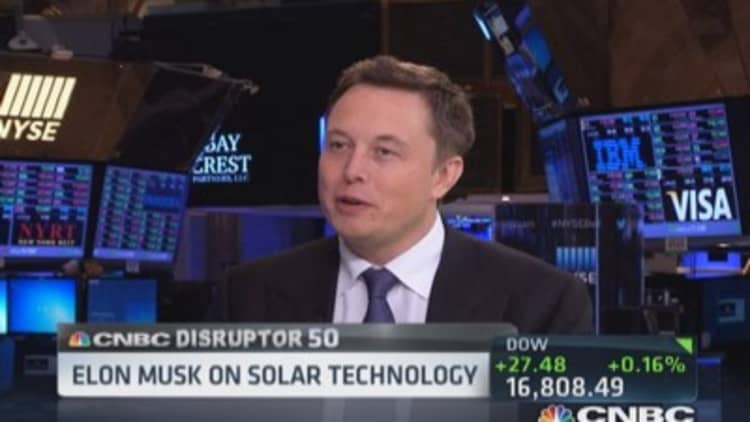A prominent tech nonprofit called OpenAI announced that Tesla CEO Elon Musk, a co-founder and occasional A.I. fearmonger, is leaving its board.
Musk said in 2014 that AI is "potentially more dangerous than nukes," and when OpenAI was introduced in December 2015, Musk and other organizers played up the organization's intent to develop technology that could help people and focus on safety.
"As Tesla continues to become more focused on AI, this will eliminate a potential future conflict for Elon," OpenAI wrote in a blog post. The organization said that Musk will continue to advise and donate to the nonprofit.
Researchers affiliated with the organization regularly publish AI research papers and release source code for other people to use. Unlike Tesla -- and companies like Facebook and Google that conduct extensive AI research -- OpenAI doesn't sell any products.
Elon Musk is known for taking on one world-changing tech challenge after another. Besides serving as the CEO of both SpaceX and Tesla, he also co-founded Hyperloop, which develops super fast tube-transportation systems, the Boring Company which digs tunnels, and the brain science venture, Neuralink.
It may come as a relief to investors that he is taking back the two percent of his time that he previously said he spent on OpenAI, to focus on things like launching re-usable rockets, and getting all the electric — and autonomous — vehicles he's promised into customers' hands.
In the fall of 2016, Elon Musk promised prospective customers and investors that vehicles with Tesla's "Hardware 2" (HW 2.0) sensors would be capable of fully autonomous driving with software upgrades in 2019. So far, the company has not come close to delivering a level 5 self-driving system. Nobody has.
Tesla has also made tweaks to the hardware that enables its advanced driver-assistive features.
The EV maker is also seen as lagging the competition — especially Alphabet-owned Waymo and GM-owned Cruise — when it comes to real-world test drives of its self-driving cars in its home state of California. However, Tesla has stated that it is conducting test drives out of state, at closed tracks and via simulation, instead.
In June Tesla hired a prominent AI researcher, Andrej Karpathy, away from OpenAI and made him its head of AI and Autopilot vision. In December Karpathy was present when Musk talked publicly for the first time about Tesla's plans for special chips that are designed to handle AI workloads. Google and Intel have also developed AI chips.
Musk has also invested in other AI companies, DeepMind and Vicarious.




